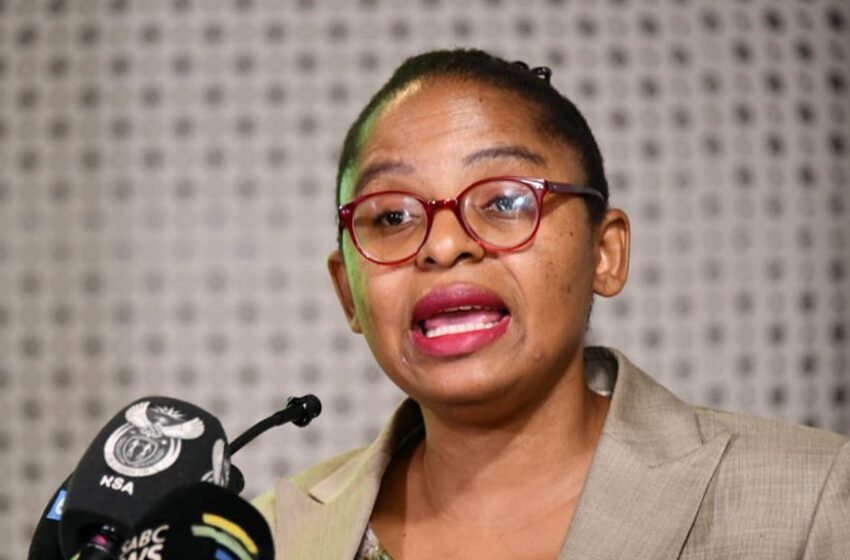Khumbudzo Ntshavheni flags coup d’État risk in South Africa

Minister in the Presidency, Khumbudzo Ntashavheni
Minister in the Presidency, Khumbudzo Ntshavheni has broken new ground by publicly flagging a potential coup d’état risk in South Africa, a term rarely used in official discourse. Speaking at a media briefing, she stressed that national intelligence has identified coup plotting as one of several serious security threats, and that steps have been taken to counter it. While the risk lingers, Ntshavheni emphasized that no active coup attempt is underway.
Identifying the Threat: From Intelligence to Action
Revealing findings in the National Intelligence Estimate (NIE) and the redacted National Security Strategy, Khumbudzo Ntshavheni noted that intelligence agencies have formally recognised the risk of a coup and implemented mitigation protocols. She clarified, “a risk does not necessarily materialise,” and reassured South Africans that these threats are being continually monitored and managed with vigilance.
Distinguishing Risk from Reality
Despite acknowledging coup planning, Khumbudzo Ntshavheni made a vital distinction: no attempted overthrow has occurred in recent times. “There has not been anyone attempting to do a coup in South Africa,” she stated, adding that while planning may exist, law enforcement and intelligence coordination ensure prompt intervention.
Security Cluster Response: Solid, Coordinated, Proactive
The minister affirmed that South Africa’s security cluster—including the State Security Agency, intelligence services, defence, and police—is robust and fully operational. The publication of strategic security documents demonstrates a shift toward transparency and accountability, underscoring that the country’s response framework is solid and capable of preventing destabilisation.
READ ALSO
Magoebaskloof Gas Tanker explosion shuts down R71: What you need to know
Mcebisi Jonas Defended by Presidency Amid DA Allegations…What you need to know
Broader Security Risks: Beyond Coups
While the coup threat grabbed headlines, Khumbudzo Ntshavheni clarified that the NIE and National Security Strategy also address other critical concerns, illegal migration, cyber threats, transnational organised crime, terror financing, and even energy grid vulnerabilities tied to Eskom. The minister warned that inadequate governance in energy could act as a destabilising factor. Proactive surveillance and cross-departmental coordination are being sharpened to confront these challenges.
Public Reassurance: Transparency in Intelligence
Publishing security assessments is a precedent-setting move in South African governance. Ntshavheni argued this allows citizens to understand state priorities and invites public scrutiny, saying, “You must hold us accountable… it will help South Africans to understand” the focus and mechanisms behind government security strategies.
Implications for Democracy and Public Trust
By openly discussing coup risks, South Africa enters uncharted political territory. Analysts suggest this candour strengthens public awareness and democratic resilience, but also risks inciting panic if not framed carefully. The strengthened oversight protocols, including internal checks, judicial commissions, and parliamentary engagement, aim to ensure accountability without triggering alarm.
As South Africa fortifies its resilience, the government’s transparent approach to high-stakes security threats may redefine how citizens and leaders engage with national defence and democratic safeguards.

